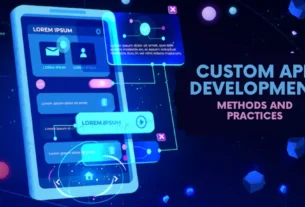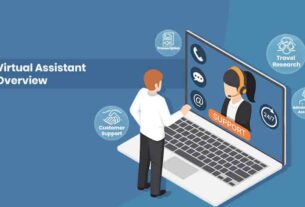This piece will briefly examine the top 10 best-paying jobs in technology in the US, considering their responsibilities, skills, and earnings potential.
What is it for you if you are inclined towards tech and searching for high-paying jobs?
Top 10 best paying jobs in technology in USA
- Cloud Solutions Architect
As a cloud solutions architect, your job will entail designing, developing, and deploying cloud computing solutions. In the cloud engineering scenario, engineers aid multiple enterprises in unleashing the optimum productivity of their cloud resources through a well-defined architectural design to support mission-critical business assignments and help in cost-saving strategies.
key Responsibilities
- Construction and planning of cloud solutions to receive and realize customers’ demands.
- Managing client accounts with proper access controls.
- Securely using the customers’ data, along with the customer’s convenience, keeps the customer data safe and available.
Key skills
- Knowledge of cloud-based platforms, including Amazon Web Services (AWS), Microsoft Azure, and Google Cloud Platform, is a highly valued skill.
- Data security practices develop your knowledge base.
- Becoming an expert in problem-solving complicated technical problems taught me to think independently and stay informed about the industry’s most recent developments.
- Product Manager (Software)
Software programming managers create and implement different software development plans and strategies to boost efficiency and generate more revenue. By conducting marketing research and understanding buyer demographics, product features, and positioning, they develop new products, introduction plans, and price models and collaborate with other departments to launch the products.
Product managers establish road maps that address the product’s ongoing, precise goals and attributes, conduct market and industry scrutiny, and cooperate with internal and external stakeholders to guarantee software success.
Key Responsibilities
- Market research will help us to understand the client’s requirements.
- Designing launch products and price strategies is another aspect we need to work on.
- Creating LTS strategies using the roadmap design.
Key skills
- Skills of managing projects and so much more to be joined together and cleared.
- Learning how to introduce software development processes.
- Erudition in user interface (UI) design rules
- Cybersecurity Engineer
As a cyber security engineer, you monitor the security of private or corporate data, networks, and systems against attacks or malicious intrusion. You enact and implement security models, scan and evaluate data for risks, and detect irregular actions or threats in the network without letting them cause any loss or damage. You are responsible for keeping the system operational securely throughout an organization.
Key Responsibilities
- Developing cybersecurity protocols to counter cyber-attacks.
- Evaluation systems for strange activity or litigation
- Devising methods for the call-outs of defects in the platform.
Key skills
- complete complete/ comprehensive knowledge of networking protocols and authentication procedures.
- The adoption of encryption mechanisms, such as tokenization and hashing methodology, occurs during this stage.
- I have gained expertise working with cloud platforms, including Amazon Web Services and Microsoft Azure.
- Software Engineer
Software engineers create, develop, and maintain software programs that meet an organization’s requirements. Their old-fashioned approach is best manifested by the innovative software development they use to produce robust, efficient, and secure solutions relatable to customers’ needs.
Software engineers participate in end-of-line testing, ensure the software is related to the quality index, and work cooperatively with other engineers, testers, and stakeholders.
Key Responsibilities
- Designing software resolutions as per customer needs.
- Liaising with stakeholders’ teams to analyze performance gaps with the present system.
- Debugging and resolving various advanced technical problems are addressed.
Key skills
- Streeny has knowledge of software development best practices as well.
- Know and practice languages like Java, C++, Python, …
- Recognition of integrated development environments (IDEs) and databases.
- Blockchain Engineer
A blockchain engineer is a person who is involved in the work of engineering blockchain solutions, which includes designing, developing, and maintaining a blockchain platform. Distributed ledger technology (DLT) is the tool they leverage to preserve data integrity, ensure secure transactions, and create novel business models, which is their modus operandi.
The work of blockchain engineers encompasses deep analysis of ongoing blockchain implementations, including identifying improvement factors and pragmatic intelligent contracts to enhance effectiveness.
Key Responsibilities
- To generate blockchain applications that fit customer’s needs.
- Working with all the intermediaries to reduce looping in the existing healthcare system.
- Among my responsibilities will be to debug, analyze, and resolve complicated tech issues related to DDL.
Key skills
- In-depth knowledge of DLT
- The ability to be well acquainted with programming languages such as Solidity, Ethereum Virtual Machine (EVM), JavaScript, and HTML/CSS.
- Knowledge of integrative development environments (IDEs) and databases is a must.
- Full-Stack Developer
In IT, full-stack developers specialize in front-end and back-end roles, meaning they can work with and develop both the end-user and the back-end application components. They build front-end interfaces and connect them to server logic, are responsible for creating databases, handle user authentication, and maintain web application structures.
Their expertise is creating interoperable, people-facing designs and systems, which lead to effective websites and applications.
Key Responsibilities
- With the same technologies as HTML, JavaScript, and CSS, among others, I can build engaging interfaces.
- Designing a database system to hold persistent data.
- Managing user authentication and authorization workflows is one of the main features of any blockchain-based platform.
Key skills
- An expert-level ability to work with web application frameworks like React and Angular are swiftly becoming popular.
- It is necessary to be skilled in web programming languages like HTML5, CSS, and JavaScript.
- Understanding the relational and NoSQL database concepts such as MySQL and MongoDB.
A guide on the full-stack earner, which will further help you understand your earning potential, is also available.
- UX Designer
Energetic UX designers can create an ocean of straightforward design and brand beauty, which is vital for a robust user experience by UX designers. They work hand in hand with the product teams regarding the design of goods, which aims to turn the products into simple, fun, and easy-to-use things.
By gathering customer feedback, they can modify the existing interfaces, make them more comfortable and valuable, and guarantee the user experience for all sites and apps is inclusive and appealing, enabling them to return.
Key Responsibilities
- Balancing the desired functions in well-structured wireframes and user interfaces, which the customers dictate.
- Building prototypes for geometry solid framework of user experience and navigation comes next.
- Designing authentic prototype models for discussion and decision-making.
Key skills
Perfect grasp of fundamental design principles like color theory, poses, and composition.
- The ability to use tools like Figma, Sketch, or Adobe Creative Suite goes without saying.
- Knowledge of HTML, CSS, JavaScript, etc., is ubiquitous on the web and a must for the successful development of web applications.
- For deeper insight into the earning potential of UX designers, check out this video with UX specialist Maureen.
- Digital Marketing Manager
Digital marketing executives draft schemes and programs to advertise goods online. They work on digital platforms across social media, search engines, and other digital channels, create open and engaging relationships with influencers, and maximize website traffic and engagement.
They employ analytics and reporting tools to determine the effectiveness of their strategies, and they adopt data-driven decisions based on performance data.
Key Responsibilities
- Creating online advertising and communications campaigns on multiple platforms should be one of the priorities.
- Influencer marketing is comprised of relating to the influencers and the brands.
- Coming up with what demographics will find the published material interesting (as regards its central message).
Key skills
- We have already demonstrated accurate results by demanding more leads for online marketing activities.
- SEO/SEM, Google Analytics Concepts, and how they measure campaign effectiveness.
- There is some knowledge and skills like those of web platforms like WordPress and HTML5.
- Data Analyst
A data analyst’s primary responsibility is acquiring, sequencing, and analyzing data obtained through communication networks, enhancing decision-making.
Utilizing statistics and analytics tools, they strive to rectify critical issues in the data sets required by various stakeholders. This aspect relates to their responsibility in creating reports that show the results of their data analysis in a significant form.
Key Responsibilities
- Analyzing, summarizing, and applying the data through statistical methods.
- Interpreting data sets is an essential task to perceive patterns and trends.
- One of the analyst’s most critical functions is creating reports presenting key data points they find during the examination.
Key skills
- Knowledge of math, number crunching, xls, dbs, and code languages.
- Efforts with visualization software such as Tableau, PowerBI, R, and Python were centralized.
- Strong problem-solving abilities
- Web Developer
What web developers do is to put together business websites and web-based applications that aid businesses in realizing their goals and objectives. They create suitable-looking interfaces and wireframes and work with content management systems that provide great user interfaces and test for performance and security.
The virtue of this approach is that they could maintain the relationship with those stakeholders regularly and ensure that the website will look good, be handy, and comply with all wishes.
Key Responsibilities
- One of the most essential parts of information technology is the design of user-friendly websites.
- Resolving ethics problems and any issues up to the required levels of efficiency and security.
- Trying various browsers and devices for them is a common practice to improve the website performance.
Key skills
- Proficiency in HTML, CSS, and JavaScript and work on Angular and React Remain prominent.
- I have worked with content management systems (CMS) like WordPress and Drupal, which have equipped me with the skills to update, edit, and even create content for a website as needed.
- Grasp of the cross-browser compatibility aspects and practical knowledge of web optimization methods.

With a wealth of experience in the industry, Mehek Ehsan is recognized as both an experienced SEO expert and a skilled content writer. Her passion lies in optimizing digital presence and creating compelling narratives. Over the years, Mahek has demonstrated expertise in driving organic traffic, elevating online visibility, and developing unique content strategies tailored to diverse audience needs.



